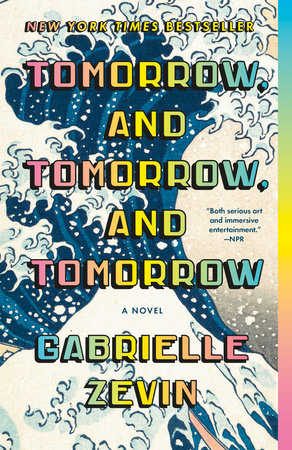In concert with the library's "The Best Thing You Checked Out" survey, our book group will discuss favorite reads from the past year. (The books don't have to have been published in 2024.)
Join us Wednesday, January 15, at 1pm and/or 5:30. Bring copies, or just the titles/authors, of your "bests" and tell us what worked to make them memorable. You'll leave with a whole list of recommendations for your TBR list (to-be-read).
Below are questions to guide a reflection of your reading year. Below that is a list of suggestions for setting reading goals for 2025.
-----------------------------------------------------------------
2024 Year-End Reading Reflection
If you are interested in understanding what your reading year reveals about your interests and perspectives throughout the year, start with these reflection questions based on the books you read in 2024 (if you kept track):
- Patterns: Which genres did you gravitate towards? Were there
recurring themes, settings, motifs, or plotlines in your list?
- Favorite authors: Were there authors you discovered or revisited this year? What qualities of their books work for you? What about their writing style did you like?
- Personal connection: How did the books relate to your own life experiences? Is that kind of connection important to you when choosing/enjoying a book?
- Personal growth: Which books challenged your perspectives or provided new insights into the world or your own experiences? Did any books significantly change your mind about or understanding of a topic? Did any prove applicable to your current situation?
- Relatable Characters: Which characters stayed with you? Did you feel kinship with any? Which viewpoints offered you a “mirror” versus a “window”?
- Rejected reads: What books did you abandon? What didn’t work for you?
- Biggest impact or “best” books: Think about the five or so titles that most worked for you this year. What about them left the strongest impression on you? Was it the story? Writing style? A particular character? Or maybe the way it met you where you are (in that moment, in life, etc.)?
Use this reflection to inform your future TBR lists or reading goals. Maybe the exercise solidified what you know about your reading interests, but maybe it also revealed some tendencies you didn’t previously realize.
If you enjoy this kind of introspection, check out these resources:
www.onbookstreet.com/blog/reading-year-reflection-and-new-years-intentions
www.onceuponabookclub.com/blogs/ya/the-power-of-reflection-learning-from-what-we-read
www.journalreview.com/stories/reflecting-on-a-year-of-reading,103834
lib.d.umn.edu/research-collections/find-what-read-next/reflection-questions
-----------------------------------------------------------------------
For example, your goals might include items like…
Start a reading reflection journal:
- This post: www.anythinklibraries.org/blog/year-books, might inspire you to pick up a pen and write more (more words, more often, more thoughtfully) about the books you read.
- While reading -- Jot down thoughts, feelings, key takeaways, quotes/lines that resonate, and questions that arise.
- When you finish -- Write about worked for you (or didn’t) in the book. List the themes, your favorite scene or character. It’s ok if each entry is different in size, scope, or tone.
Create (more than one) TBR list:
- Choose themes, authors, or settings, etc., that you want to explore in 2025 and make a short TBR for each.
- Read more from authors you know you enjoy.
- Pick up a new-to-you series, so you’ll always have something to read next, or in between other reads.
- Work off someone else’s list – maybe choose a few books from the NYT “100 Best Books of the 21st Century” list or from Tookie’s List in the back of The Sentence, by Louise Erdrich.
- This post: www.apartmenttherapy.com/reading-list-guide-37016621 has some helpful prompts for creating your TBR, like: lists for different moods, decide which unread books should rollover, and mix in short stories.
- Make a short list and a long list. The short list is less negotiable – you want to read these books, and soon. The long list is more like, “maybe this year,” or just “maybe.”
Accept a reading challenge:
- Hopkinton Town Library’s Winter Reading Challenge!!
- BookRiot’s Read Harder Challenge: bookriot.com/read-harder-2025
- Modern Mrs. Darcy’s kit to create a “Reading Life Challenge” modernmrsdarcy.com/reading-life-challenge/
- There are a million reading challenges online – pick one!
Schedule (more) reading time:
- Think about carving out (more) time for reading this year (if that’s important to you). This article might be helpful: psyche.co/ guides/ how-to-make-a-daily-habit-of-reading-more-books
- Consider audiobooks so you can read in the car or at the gym.
- Create a space in your home for reading without distractions.
Discuss books more often:
- Join (or start!) a book group. HTL’s group meets monthly on the third Wednesday. Talk to us if you want advice on starting a group (here or at your home) or connecting to an existing local group.
- Initiate a regular meet-up with friends or co-workers to talk about what you’ve been reading. Trade favorites.
- Write short reviews of books you borrowed from HTL. We’ll post them on the shelf so others might benefit from your reflection.
- Attend an author event, like HTL’s evening with Linnea Hartsuyker (Feb. 19).


